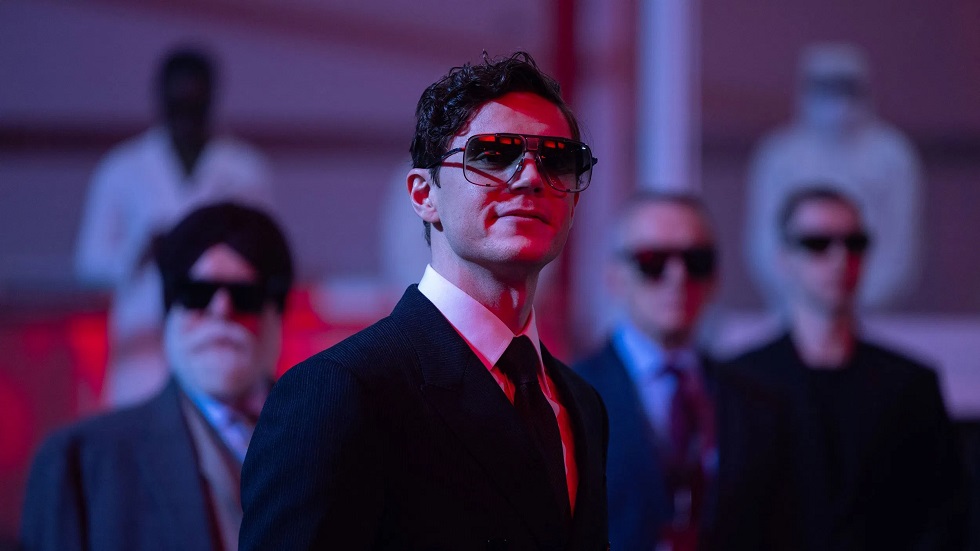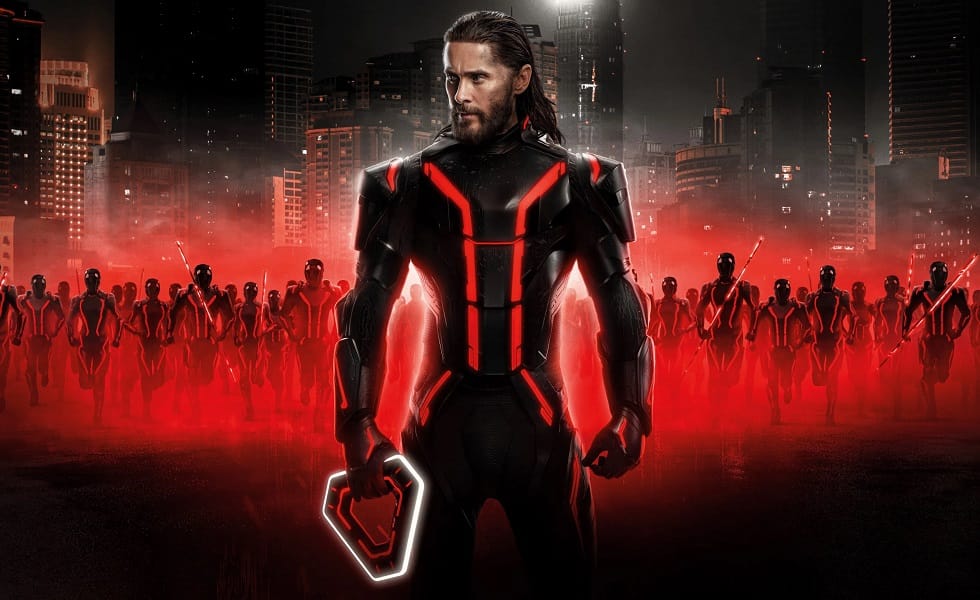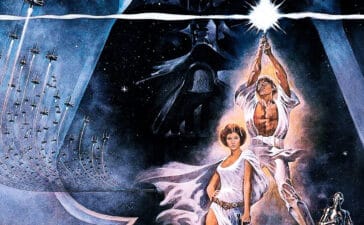If you can ignore the plot, the themes, and the Jared Leto-ness of it all, the third Tron is pretty… well, it’s pretty.
Somebody at Disney is absolutely fucking convinced that Tron works as a franchise. That must be a lonely existence. Tron has never worked as well as we like to imagine it should or could. Not in the proto-cyberpunk 1982 original, not in 2010’s sleek but soulless Tron: Legacy, and not in Tron: Ares, a soft reboot that forgets the point of being one of those is to ditch what doesn’t work and keep what does.
Tron does work as an aesthetic influence, largely existing to inspire the look and vibe of later, better things. In that sense, Tron: Ares does the job, injecting a fresh dose of cyber-nanites into the monoculture. Maybe that’s why we get one of these every 15 to 25 years – just enough to keep the notion of Tron in the mix and remind us that neon at night and frictionless flat planes receding into the infinite digital distance look cool as hell. Especially when set to a Nine Inch Nails soundtrack.
Supporting that laserlight vision on teetering legs is a nonsense narrative that sees Greta Lee take up the burden of being a Tron protagonist. She’s Eve Kim, new CEO of ENCOM, the company founded by OG Tron MC Kevin Flynn (Jeff Bridges). You may recall his son, Sam Flynn (Garrett Hedlund), took the lead in Legacy but he’s vanished in the interim, just as his dad did between 1982 and 2010, because nobody wants to be the lead in a Tron film more than once. I look forward to see what emerging star is desperately searching for Greta in the next one.
The actual plot here is a war between rival CEOs, which should really play well in the current climate, along with “doing a collab with Tesla’s Optimus” and “casting Jared Leto”. Speaking of Musk, despite generally trying not to, Evan Peters is playing a version of him, more or less, as Julian Dillinger, head of Dillinger Systems and the villain of the piece. I base this observation on the fact that he’s constantly being emasculated by his mother, played by Gillian Anderson.

If you retain any memories of Tron: Legacy apart from “killer soundtrack” and “I think Michael Sheen is doing his David Bowie”, you may recall that Cillian Murphy has a blink-and-you’ll-miss-it cameo in that one as Edward Dillinger Jr, son of David Warner’s bad guy in the first film. But while I hate to dash the hopes of fanfic shippers everywhere, Murphy’s Ed Dillinger and Anderon’s Elisabeth Dillinger are canonically siblings. Still, you do you.
But I digress.
The gist of the plot, which writers Jesse Wigutow and David DiGilio put their actual names to, is that manchild Dillinger is working on a way to bring artefacts and programs from the Grid, the virtual world that exists inside computers in Tron, into our nominally real world, but so far they only last for about half an hour.
Never mind the fact that it makes no sense, or that our understanding of computer technology has come so far that its impossible to square the circle of the first films assumptions for a modern audience, or that the instant 3D printing or nanotechnology or whatever the hell is already a technological miracle on par with stable fusion – that’s the concept here. Lee’s Eve has tracked down the requisite McGuffin, a “permanence code” invented by Flynn the Elder and discovered by her late sister, Tessa (Selene Yun).
Dillinger the Younger dispatches security program Ares (Jared Leto, and we’ll circle back) essentially a digital assassin, into the real world to grab the code and if Eve winds up cooling on a morgue slab in the process, well, that’s just the price of doing business.
But what if… Ares started to question his programming?

This is a riff we’ve seen a lot in cinema – Terminator 2 is the obvious antecedent, but Short Circuit did the same thing with a robot way cuter than Leto. The most obvious point of comparison is John Carpenter’s Starman, which saw Jeff Bridges as an alien in the cloned body of a dead house painter driving around middle America and falling in love with Karen Allen. Bridges copped an Oscar nomination for his efforts there. Leto won’t for this one.
Leto, a dogshit human being and a gifted actor, doesn’t have much to work with here, and doesn’t do much with the little he has. His Ares is a cipher, and his journey to something resembling autonomy and self-actualisation involves a developing obsession with ’80s pop ephemera, because nostalgia is what we have instead of culture these days. He prefers Depeche Mode to Mozart, an opinion I might have some time for if it originated anywhere else. Luckily, we have a back up villain in the form of Jodie Turner-Smith as Athena, another security program, whose chief job is to look mean and die over and over again.
That leaves Leto free to utterly fail to convince us of Ares’ character arc. The problem is that Leto does fine when he’s playing a character, but this is the sort of role that depends on the sheer charisma and likability of the performer. It requires a movie star, not an actor. And, unfortunately, they went with Jared fucking Leto.
That is more or less your lot in terms of plot. Bridges gets his inevitable one-day-on-set cameo, and Arturo Castro gets the thankless job of being Lee’s sidekick/comic relief, fanging out asinine one-liners in a way which will make you ponder if you can mute the dialogue track.

Which might be the best way to watch Tron: Ares, now that I mention it, because we do get a ripping, rumbling, propulsive score from Nine Inch Nails. Not Trent Renzor and Atticus Ross, mind you, but NIN, a credit that must have involved some serious negotiations and a number of money-filled trucks backing up to Casa del Reznor. Nine Inch Nails is a brand rather than a band these days, with shirts outselling albums of a significant ratio, and somebody somewhere – maybe that guy from the first paragraph! – decided that brand would look pretty good on a Tron movie.
It does, which is annoying to admit, but Trent and Ross’s soundscape is a beautiful match for cinematographer (and regular David Fincher collaborator) Jeff Cronenweth’s slick, moody visuals. As imagined by production designer Darren Gilford, the digital world of the Grid is as beautiful and brutalist as ever – even more brutalist, given the lack of life. the Grid of Tron: Legacy pulsed with life – there was even a nightclub! The Grid of Ares is largely unpopulated; whereas previously it felt like a place, now it feels like a backdrop. But hey, at least it’s a backdrop for some bangin’ tunes.
That’s about the level at which you want to engage with Tron: Ares – as an aesthetic exercise. Sometimes that’s enough. Look any deeper and you’ll find a film going through the motions, a rote exercise in mechanical characterisation and world-building that never comes within a parsec of being engaging or interesting. It’s not so much a movie as an act of cynical brand maintenance.
But hey – it sure is pretty.
Tron: Ares is in cinemas now. Probably wouldn’t drag my feet, though.











